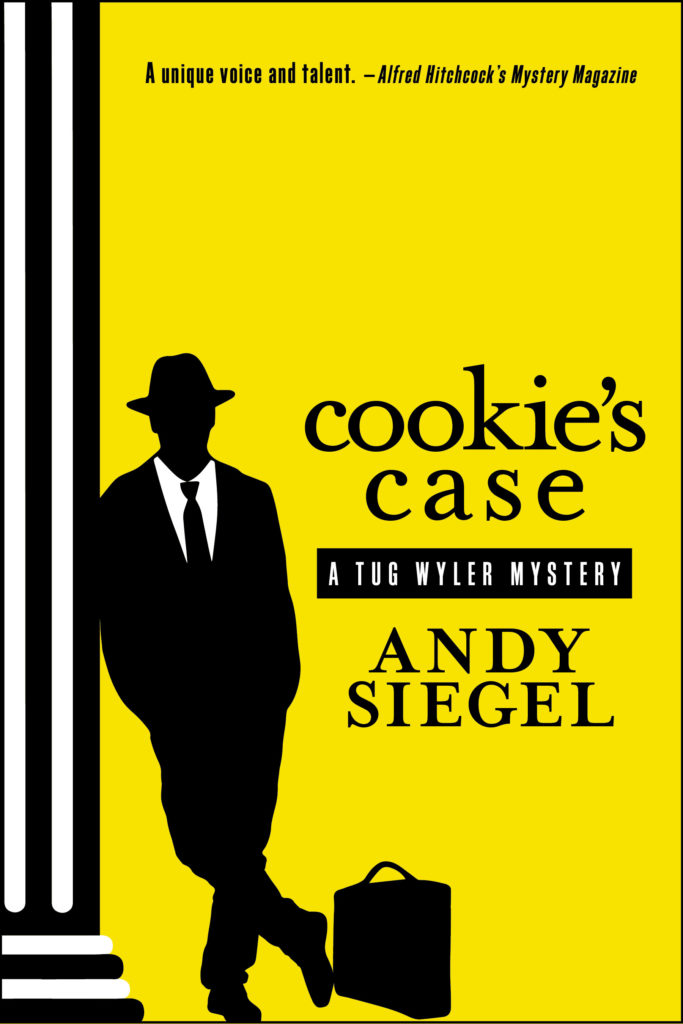
Overview
Cookie, an angel in stiletto heels, is by far the most popular performer at Jingles Dance Bonanza. To her devoted audience, she’s a friend, therapist, and shoulder to cry on, all rolled into one. While meeting an old pal at the club, Tug doesn’t expect to pick up a new client but quickly realizes the gallant Cookie—dancing in a neck brace, each leg kick potentially her last—is in need of a committed champion. Believing that Cookie is the victim of a spine surgeon with a sloppy touch, Tug takes her case. But as he seeks both medical cure and a fair shake for Cookie, he realizes—a tad too late—that sinister sights are now trained on him.
Cookie’s Case, Tug Wyler & Me
During the workweek you can find me litigating in New York courts as a personal injury attorney. While I know people enjoy poking fun at my profession—the “ambulance chaser” tag’s a hard one to shake—what you need to understand is that the victims I represent are real people exactly like you and me, going about their business and not planning for catastrophe. Yet, out of the blue, their lives and those of their families have been suddenly, and tragically, compromised.
We are always vulnerable to harm, and the merest instant of negligence can change everything. Recognizing this, I see it as my responsibility, not simply to strive to achieve the fullest justice for my client’s, but also to do my best to make my their life easier in any way I can. Experience has taught me only too well how likely it is that the future faced by any injured person will be long in challenges, and so my empathy matters greatly every step of the way. As a result, the relationships I enter into with clients are also journeys we take together. At the same time, securing fair compensation for their pain and suffering winds up being only a fraction of what I do. In Cookie’s Case, Tug demonstrates similar dedication by calling into question the validity of Cookie’s diagnosis and need for repeated spinal taps. For me (and Tug), it’s more than a job, it’s a calling.
It’s important to make clear that, even given my representing victims of doctor error—and often equally, because of it—I have a deep and healthy respect for the medical community. But just as there are unethical lawyers, doctors with less than upright motives exist as well. Usually, the explanation for such behavior is identical in both professions—money. Financial gain is definitely at the root of most ordinary evil. Still, there are instances, rare though they may be, when unethical conduct turns out to have been driven by something more personal, more emotional, more deep rooted, more desperate.
This last, disturbing possibility lies at the heart of Cookie’s Case.

